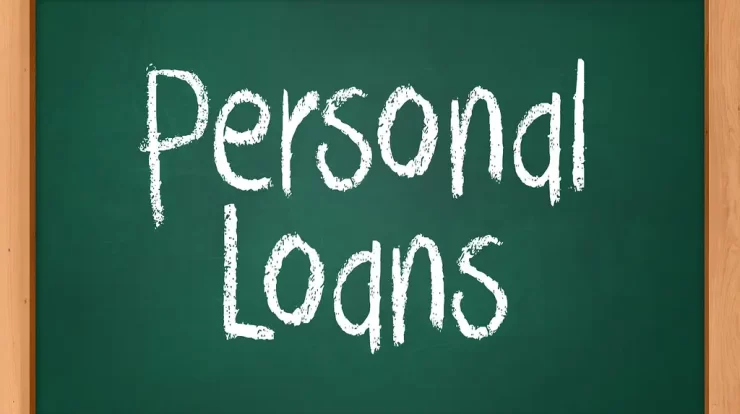
For new parents, having a child can be a wonderful thing. Welcoming a new life into the world should be one of the most precious moments of one’s life.
But the reality is, having a child can be expensive. According to the U.S. Department of Agriculture (USDA), the cost of raising a child to the age of 18 costs around $233,610, which covers:
- Housing
- Food
- Child care
- Education (not college), AND
- Other necessities
Therefore, new parents should start planning for a financially stable future, to ensure that they provide the best for their newborn.
Why Finances Are Important For Parents
Like any adult responsibility that you may encounter, parenting also comes with its long list of finances. Not to persuade couples from having children, it’s important to understand though that caring for a child comes with a lot of responsibilities, including finances. So, if you plan on starting a family, plan accordingly.
Here are 7 money moves that you should make now:
- Update Tax Forms
You may want to update your tax forms to claim child tax breaks, once you have your first child. The new Tax Cuts and Jobs Act (TCJA) that was signed into law by President Trump will affect new parents in a number of ways. The most important being that the new law rids the dependent exemption but retains the concept of a dependent, so that parents can claim the Child Tax Credit (CTC) and other child-related tax benefits. And, the CTC has doubled from $1,000 to $2,000 per child, putting more money into parents’ pockets. You can also apply for the Earned Income Tax Credit and the Child & Dependent Care Credit.
2. Add Child To Health Insurance Plan
It’s not surprising that your health insurance provider might contact you, or automatically add your newborn to your health plan. In fact, your provider should be made known that you had a baby.
“Most health insurance plans typically require that your child is added within 30 or 60 days post-delivery. If done within that time frame, your child should be covered under that policy” says Katherine Bill, a financial blogger at Boom Essays.
Without a health insurance plan, you’ll risk paying out of pocket for any doctor visits, medications, etc. that your child may need. So, go to the doctor’s office prepared with your child under good health insurance.
3. Have A Monthly Budget
While there’s nothing wrong with living a little, having children may cause you to think differently on how you manage your cash. For example, if you and your spouse have gone out a lot before conceiving a child, then you might see post-pregnancy that you’re going out less and less for childcare.
Yes, expenses can come unexpectedly when you’re a new parent. So, stay on track financially is by starting and sticking to a monthly budget. Take know on how much you want to spend on:
- Food/Formula
- Diapers
- Clothes
- Doctor visits, etc.
Plus, make sure to revisit the budget every few months, since expenses can change. You might notice an unexpected price hike in, say, food and baby formula, for example. So, budget accordingly.
4. Have An Emergency Fund
Unfortunately, we can’t avoid the unexpected. That’s normal for parents everywhere, including newbies. The unexpected can take on a lot of forms, and you wouldn’t know it until it happens:
- Your child may get sick and hurt, and may need medical attention.
- Your family car might break down, while you’re on the road.
- Something in the house needs fixing.
While the list can go on, it’s a reality for some parents. But don’t panic. Take a deep breath and see what needs to be done.
Don’t let these emergencies drain your bank account, OR give you mounting credit card debt. Instead, have an emergency fund 3 to 6 months’ worth of expenses – in in place before you need it.
5. Live On Less
Believe it or not, people are living on less nowadays. While living on less may not sound like fun, it’s true for most parents. Even if you have a great source of income, necessities like diapers, food, clothing, doctor visits, and so on, can add up in your monthly expenses. So, there has to be a way to get everything you need without sacrificing much of your income, right?
With many money-saving hacks these days, there are many ways to live on less. Even parents can get in on these hacks and save some money along the way. The more you can stretch your income and avoid dipping into your savings, the more cash you’ll have to save for the future or spend on planned fun activities that you can have with your children. And, while it takes time to earn money, it’s faster to save money.
6. Invest In Life Insurance
While many new parents might not think that buying term life insurance is necessary, it actually is necessary. Like other forms of insurance, life insurance is designed to financially protect you and your family against worst-case scenarios. If something were to happen to you, your spouse, or your child, then life insurance would help you with the tab.
In fact, the monthly premiums are actually affordable, providing the financial protection your family needs in case something tragic were to occur. Plus, life insurance calculators can help you determine the appropriate coverage for your family, and have you purchase a policy according to your situation and other factors.
But hopefully, nothing bad happens to you or your family. But in the case of something as discussed above, then life insurance helps. Either way, even if you don’t feel like you and your family need life insurance, get it anyways.
7. Save For Child’s Education
Finally, education is an important thing to have for your child. Now, if you have great plans for your child’s future – or if you’d like for them to go to college, then now is the time to save for their education. The reality is, school can be expensive, especially if you plan on sending your child to a private four-year institution. Only 13% of millennial parents place college savings as one of their top child-related financial priorities, because of how expensive school can be.
One way to save for your child’s education is through a 529 plan—a tax-advantaged savings plan that’s used for qualified educational expenses – and now, also for private K-12 education. However, do your research to see which plans that you may qualify for.
You can also look for scholarships offered for private or charter school education. You’ll be surprised that scholarships aren’t just for colleges and universities. In fact, your child can qualify for private or charter school when you take advantage of scholarship opportunities.
Conclusion
Ultimately, this post is not to dissuade couples from having children. This is to assist new parents when it comes to welcoming a bundle of joy.
While being a parent to a child can be expensive, it doesn’t have to be if you start planning and saving now. When you plan for your child financially now, you’ll have less of a burden when providing for them.
As you have your first child, you’ll also have a new financial reality. So, make the necessary financial arrangements now to minimize stress down the road, and be able to spend the most time on your newborn.






